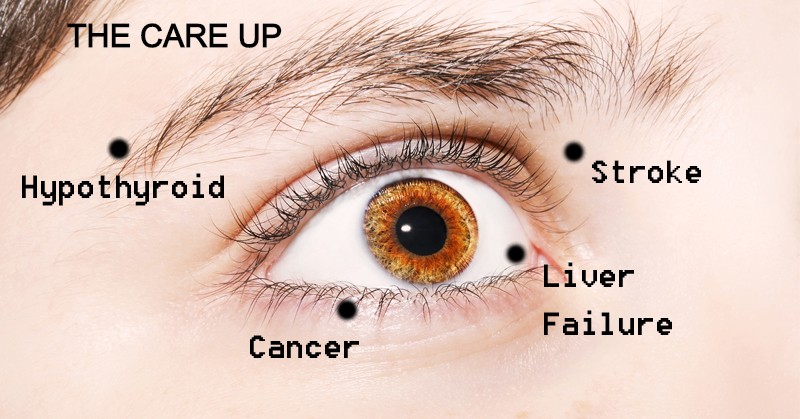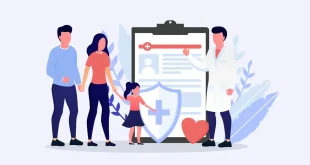IMPORTANCE OF EYE HEALTH
Prevention and early diagnosis of eye abnormalities and diseases are vital to avoid problems. For this reason, our medical team at the Vision Center gives you the following tips.
The eyes are an important part of a person’s health. For this reason, their care is more than having perfect vision, it is also keeping them healthy and avoiding the problems many times derived from common eye diseases, but which do not present symptoms, such as glaucoma and age-related macular degeneration.
Seeing well is a vital aspect to carry out daily activities, and regular visits to the specialist are an important part of the prevention of, for example, cataracts, says ophthalmologist Miguel Srur: “The more advanced cataract is, the harder it becomes and, therefore, increases the surgical time and, consequently, the risk of complications,” says the doctor, who here answers the most frequently asked questions about eye health.
At what age should the first ophthalmological consultation be?
At four years old, as long as the parents find nothing suspicious. Reasons for prior consultation and from birth are a deviation of the eyes, white pupils, children who come very close to the objects they take, not looking at a mobile phone, rapid movements of the eyes, droopy eyelids, or any condition that leads to suspect poor vision. The deviations of the eyes do not pass by themselves or when the child grows, therefore, they must be controlled early. Any cause of poor vision in a child not treated before the age of six can lead to a lifelong lack of vision development, this is called amblyopia.
Is it harmful to children to wear glasses that are not specially designed for them?
That’s right, if the lenses do not correspond to what the child requires, they can cause poor vision, eventually amblyopia or strabismus.
Are contact lenses suitable for children?
Only to the extent that it is necessary, there are conditions in which it is an obligatory requirement and the mothers have to learn to manipulate them. Usually, contact lenses are indicated over the age of 11, to the extent that children are responsible, know how to handle them and keep them clean.
Is it necessary to consult a specialist when presbyopia appears or is it enough to buy the glasses that are sold in any optician?
It is a great mistake to buy them without prior medical evaluation since these lenses do not correct additional optical defects to presbyopia and, often, this can cause headaches or a progressive discomfort of the eye’s focus, subsequently requiring increasingly thicker lenses.
Is there basic eye care?
Not scrubbing them, not reading or using a computer too closely, ideally reading in good ambient light rather than light directly above the reading, and not using mismatched lenses. For contact lens wearers, always wear them clean, with the cases impeccably neat (as they are reservoirs of germs that can cause serious ulcers in the eyes). In the case of disposable contact lens wearers, do not use them more than what is stipulated by the conchologist or doctor, since deposits can originate that dirty the lens and cause infections.
Myopia or astigmatism, can they be prevented?
Unfortunately not. However, some studies are saying that reading very closely could lead to myopia. There is a condition of high astigmatism (change in the curvature of the cornea, which is the transparent window of the eye, above the part of color or iris) called keratoconus, in which it has been shown that it can worsen when rubbing the eyes, mainly in allergic children or youth.
Only those who have a problem insight should have annual checkups?
Undoubtedly, if there are vision problems, the control must be annual, if not, it is not mandatory. But from the age of 40, annual control is mandatory, since it increases the risk of glaucoma, which is asymptomatic, which can lead to blindness, and is only detected with an eye pressure measurement. Preventive controls should be carried out from the age of four, every three or four years.
For eye check-ups, is it necessary to stop wearing contact lenses a few hours before?
The ideal is to at least stop using them from the day before.
Are there differences between early cataract treatment and treatment done when it is already advanced?
The more advanced cataract is (opacification of the lens or intraocular lens that allows focusing), it takes on a harder consistency and, therefore, increases the surgical time, consequently, the risk of complications. Also, it can increase the risk of ocular hypertension in a long-standing cataract. There is no longer the old concept that the waterfall has to be “mature” to be operated on.

Does the cataract always strike both eyes or can it develop in only one?
The main cause of cataract is age, therefore, as we age, the lens loses its transparency in both eyes, because the vast majority are bilateral. Yes, they can be out of time and appear in one eye first then the other. Cataract causes in one eye can be congenital or secondary to inflammations, trauma, general illnesses, etc.
Are eye pathologies hereditary? Which yes and which no?
Many can be hereditary, although not always, as are some myopias,
astigmatisms and hyperopia, and strabismus. Purely congenital varieties can be keratoconus, corneal and retinal dystrophies, some varieties of glaucoma, etc.
Does glaucoma have symptoms?
The most frequent variety is chronic glaucoma (overlapping rise in intraocular pressure), the incidence of which increases significantly after 40 years of age and, unfortunately, does not give symptoms. The patient begins to lose the visual field from the periphery of the vision, contracting progressively, something that he does not realize initially.
Over months or in a few years the vision has contracted so much that the patient ends up seeing as through a tube, noticing when he cannot see the steps of the stairs or the sidewalks. If it continues to progress and is not controlled, in a short time the tube closes and the patient becomes blind. Unfortunately, the only way to find it out in time is with eye tonometry (taking off pressure from the eye) and it must be done on an annual basis.
The form of acute glaucoma, this is a sudden rise in eye pressure, is rarer, but not as infrequent. If it causes severe pain, the patient should consult immediately, because they are at high risk of vision loss in less than 24 hours.
What are the benefits of Lasik refractory surgery to correct vision defects such as nearsightedness or astigmatism?
The refractive Lasik surgery when well corrected as indicated accurate myopias, astigmatism, and hyperopia in some cases. Undoubtedly, the great benefit is in a better quality of life, by ceasing to depend on lenses. Many patients appreciate being able to wake up in the morning and see well. Of course, the results will be optimal when the patient’s selection is correct and the corresponding examinations were done in the preoperative period since some conditions contraindicate this surgery.
 The Care Up
The Care Up




